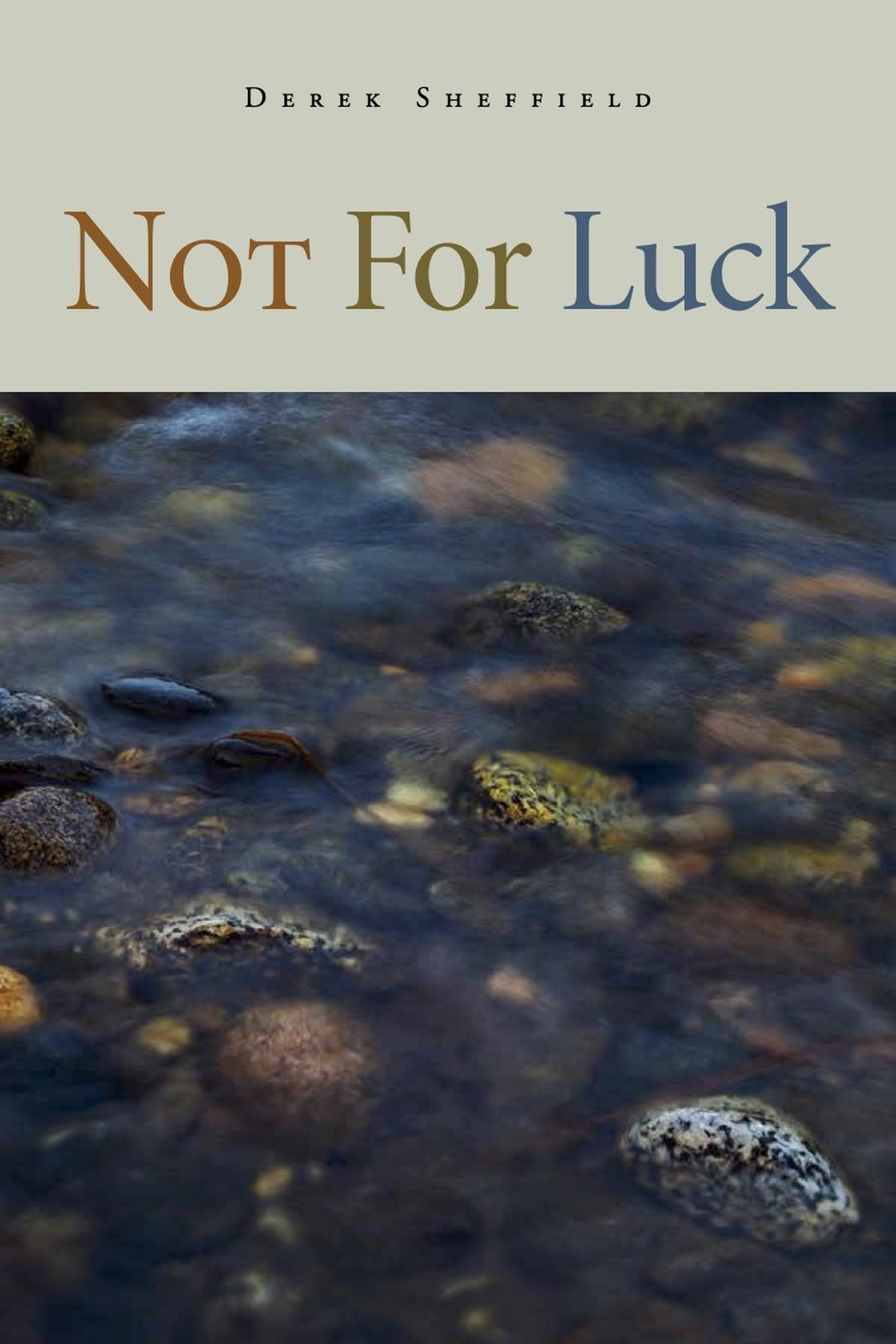Locally Writ: For poet Derek Sheffield, life is art, and art is life

Derek Sheffield’s writing journey began with adventures in science fiction and fantasy. But high school and college would introduce him to a host of new genres and styles of writing, most notably among them poetry.
“Poetry is a way of being in the world for me,” Sheffield said. “It informs everything that I do.”
Following in the footsteps of his poetic hero, William Stafford, Sheffield likes to think of himself as a “filmless photographer.”
“I’m always listening,” he said. “And when you make the kind of poems that I do, everything in your life kind of sparkles a little bit because anything could end up in a poem.
“I’m very much interested in art in the service of life, of increasing the stock of available reality.”
In other words, for Sheffield, life is art, and art is life.
“Poetry breaks down any kind of wall that would separate those two things,” he said.
In his latest collection, “Not for Luck,” Sheffield explores the central themes of his life, “daughters and other wild things.”
He writes about the joy of witnessing the magic come back into life in the context of fatherhood.
“You suddenly realize you get to do it all over again,” he said. “Suddenly, all of the holidays are magical again, and it all comes sparkling back.”
For Sheffield, writing belongs in the morning, ideally before the sun rises, when all of his “judges” are asleep.
“Then, I can write anything,” he said.
“Timid as Any Herd Animal,” the first piece in the collection, gives an idea of that necessary stillness.
“That bright of the blue sky variety / raising every racket of mower / and blower, backhoe and whacker, // not to mention every street’s hatch / of after-school slammers and high-pitched / trampoliners. O just a while longer, // a day, maybe three, give them / a rest. Have the hammocks hold fast / and the bark remain in the dog. // Have the thinnest veil of dusk, / fog, or drizzle, call stillness / near, her sister, silence, here.” (Courtesy of MSU Press)
It’s all about creating “a making space,” he said, free of distractions and the critical internal voices that tend to settle into our heads as days unfold.
“I’m always astonished at what happens when I sit down or even just stand and listen for a while,” he said.
Referencing Stafford again, Sheffield emphasized the importance of being “inviting” to one’s poems.
“If you’re hospitable, they’ll keep coming,” he said. “So, think about how you can organize your life to create and then sustain that making space.”
The pandemic has made that space more difficult to sustain, but Sheffield has kept himself busy in other ways. When he isn’t teaching virtual English courses at Wenatchee Valley College, he edits terrain.org‘s poetry section.
“It’s actually only just now, in the last month or so, that I have felt like making new work again,” he said. “And it’s the greatest feeling in the world.”
To aspiring poets, Sheffield offered the following advice.
One, stop waiting and start writing. Two, read, read, read. And three, find a community of writers with whom you feel comfortable sharing your work.
“Without any critique, without even saying much about it, sitting together and sharing work does wonders,” he said.
“Not for Luck” is available online through Auntie’s Bookstore. For more information, visit dereksheffield.com.